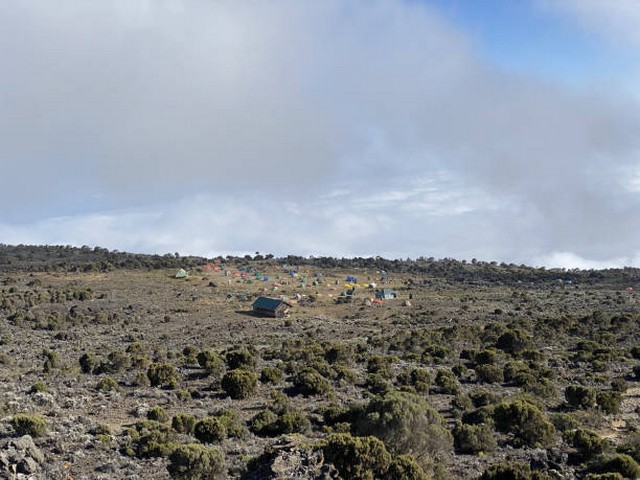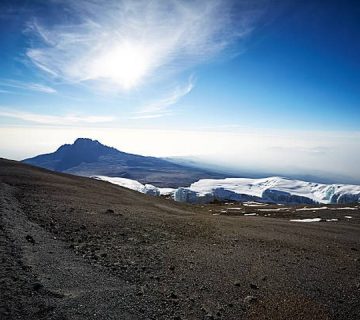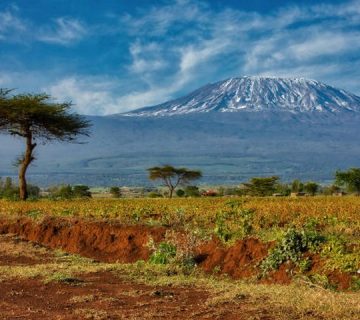Kilimanjaro Trekking With A Medical Kit: Must-Haves
Ascending the majestic slopes of Mount Kilimanjaro is not just a trek; it’s a journey into the heart of Africa’s beauty and a test of personal endurance. Here at Kilimanjaro Centre for Trekking and Ecotourism (KCTE), we understand that preparation is key to enjoying and successfully completing this awe-inspiring journey. One of the essentials in ensuring a safe and enjoyable climb is carrying a well-equipped medical kit. In this blog post, we will guide you through the must-haves of a medical kit for your Kilimanjaro trek, ensuring you’re prepared for every step of the way.
Why Is A Medical Kit Essential For Kilimanjaro Trekking?
Trekking up Kilimanjaro means venturing into an environment where professional medical facilities are scarce and where altitude can affect everyone differently. A well-prepared medical kit can be the difference between a minor hiccup and a major emergency. It equips you to manage common ailments on the mountain, such as headaches, blisters, and stomach issues, and provides first response capabilities until professional medical help can be reached.
What Should Your Kilimanjaro Medical Kit Contain?
H2: Basic First Aid Supplies
- Adhesive Bandages and Sterile Gauze Pads: For covering minor cuts and scrapes.
- Medical Tape: To secure gauze and bandages.
- Antiseptic Wipes and Creams: To disinfect wounds and prevent infection.
- Blister Treatment Kits: Essential for managing foot care on long treks.
- Pain Relief Medication: Ibuprofen or acetaminophen can manage pain or reduce fevers.
- Anti-inflammatory Creams: Useful for sore muscles and sprains.
H2: Altitude Sickness Prevention and Treatment
- Acetazolamide (Diamox): This can help with acclimatization if taken properly under prescription.
- Anti-nausea Medication: To help manage symptoms of altitude sickness.
- Oxygen Saturation Meter: A small device to monitor your blood oxygen levels, crucial at high altitudes.
H2: Gastrointestinal Medications
- Antidiarrheal Medications: Such as loperamide, can quickly address symptoms of diarrhea.
- Rehydration Salts or Electrolyte Tablets: Essential for maintaining hydration balance, especially important at altitude.
- Antacids and Digestive Aids: Useful for managing indigestion and other stomach upsets.
H2: Allergy and Cold Preparations
- Antihistamines: For those prone to allergies.
- Decongestants and Throat Lozenges: To manage cold symptoms, which can be common due to the cold climate.
H2: Prescription Medications and Personal Needs
- Any Personal Prescription Medications: Ensure you have enough for the entire trip plus some extra.
- Copies of Prescriptions: Carry these in case you need to verify them with medical personnel or replace lost medication.
How To Pack And Use Your Medical Kit Efficiently
H2: Compact and Organized
Your medical kit should be compact and well-organized in a waterproof container. Label all medications clearly and include usage instructions, especially if trekking in a group where others might need to access the kit.
H2: Accessibility and Familiarity
Keep your medical kit in an easily accessible part of your pack and make sure you are familiar with its contents and how to use them. Consider a quick orientation for your group on where the kit is and what it contains.
H2: Regular Checks
Regularly check your kit before and during the trek to replenish used items and dispose of expired medications. This ensures readiness in case of any medical needs.
Why Choose Kilimanjaro Centre For Trekking and Ecotourism (KCTE)?
At KCTE, we not only provide you with vital information like how to pack your medical kit but also offer guided treks that ensure you have professional support every step of the way. Our experienced guides are trained in first aid and emergency response, complementing your medical kit and providing you with additional safety on your climb.
FAQs: Preparing For Your Kilimanjaro Trek
Q1: How important is it to consult a doctor before trekking Kilimanjaro?
A1: It’s crucial! A medical check-up can assess your fitness levels and any underlying conditions that may affect your ability to climb, ensuring you’re prepared for the altitude and physical challenge.
Q2: Can I rent a medical kit from KCTE?
A2: Yes, KCTE offers fully equipped medical kits for rent. However, we recommend bringing personal medications and discussing any specific needs with us before your trek.
Q3: Are there medical facilities on Mount Kilimanjaro?
A3: There are limited medical facilities on the mountain. Our guides carry emergency equipment and communication devices for quick response in coordination with park authorities.
Q4: What is the common cause of evacuations on Kilimanjaro?
A4: The most common cause is altitude sickness. Proper acclimatization and medications like Diamox, under medical advice, can help prevent this.
Ready To Embark On Your Kilimanjaro Adventure?
Preparing a medical kit might seem daunting, but it’s an essential part of ensuring a safe and enjoyable Kilimanjaro trek. At Kilimanjaro Centre for Trekking and Ecotourism (KCTE), we’re committed to making your climb as smooth and safe as possible, backed by professional guidance and comprehensive preparation. Book your Kilimanjaro climbing adventure with us today and step into the heart of Africa equipped, prepared, and inspired!
Remember, every step you take on Kilimanjaro brings you closer not only to the peak but to understanding your own strengths and the vibrant spirit of Tanzania. Join us at KCTE, where your adventure begins with safety, knowledge, and support.




